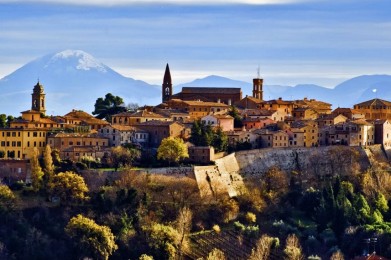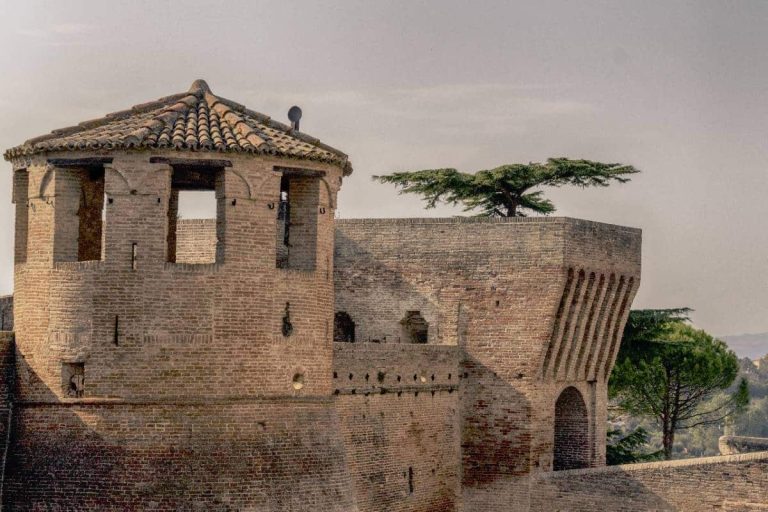The Roveresca fortress was built for commission of Giovanni della Rovere, together with other cones of the duchy (Cagli, Cantiano, Fossombrone, Frontone, Sassocorvaro, Pergola, Mondolfo), and dates with every probability to later step of the activity of the Sienese architect, probably the decade 1482-1492.
The building remained unfinished for the return of the architect Francesco di Giorgio Martini in my native Siena and for the subsequent concomitant death of both the contracting authority Giovanni Della Rovere is of the architect (1501). In 1631, at the death of the last Duke of Urbino (Francesco Maria II della Rovere), the Duchy returns to be part of the state of the Church and the Fortress of Mondavio having no more defensive purposes is transformed into prison pontifical. Such use continues even after the Unity of Italy up to forty years of the twentieth century.
The majestic fortress presents itself as a real war machine, in which every form and structure was studied to resist attacks with weapons of the epoch: both with the weapons to jet (catapults, Trabucchi) both with firearms, who began to spread in those years. The presence of the tower dominates the entire structure for both its dimensions and the particular form. Its eight faces from figuratività complex and irregular, its prospectuses elusive and sharp edges create an effect of helical screwing from the bottom toward the top of the entire donjon. The donjon is fastened a walkway, protected by a torrioncino, which leads to a massive tower semi-circular, joined with a bridge with two ravelins entrance (one of these is still visible).
The walkway and the tower semi-circular form when viewed from the top of the figure of a leaf spring. This architectural extravagance can be considered the signature itself by Francesco di Giorgio Martini. The complexity of the whole fortification would be further enhanced if it was built, as reported in the Treaties of the Architect, a further torrione rounded in shape, provided on the western side and never realized. This tower would have understood the rooms to be used as a dwelling, not present inside the fortress.
ufficio.turismo@comune.mondavio.pu.it


